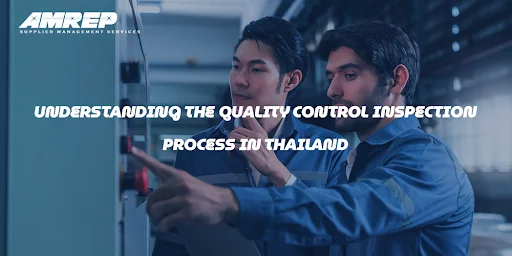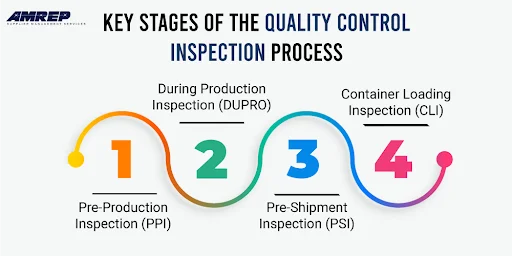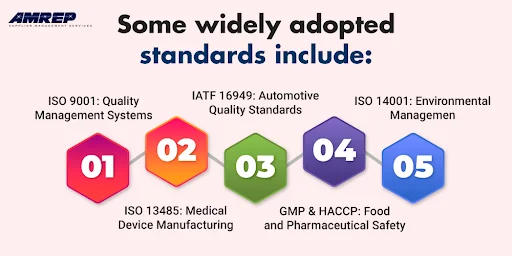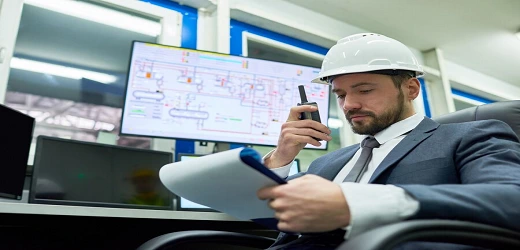What is a Layered Process Audit?
Layered Process Audit is a quality tool designed specifically for manufacturing management. It is meant for auditing organizational processes ...
By AMREP | Posted on 12 - June 2025

Thailand stands as one of Asia’s leading manufacturing powerhouses, supported by government development policies that actively encourage foreign investment. Beyond its open and business-friendly economy, Thailand boasts a skilled and educated workforce paired with well-developed infrastructure. These strengths have attracted many top global brands in automotive, appliances, and fashion, making the country a preferred destination for sourcing and manufacturing.
This blog offers an in-depth look at the quality control inspection process in Thailand, including the key stages, tools, challenges, and the role of third-party inspection services.
Thailand is known for its strong industrial base, producing everything from automotive components and electronics to medical devices and consumer goods. While competitive pricing and advanced infrastructure attract global companies, product quality is what sustains long-term partnerships.
Quality control ensures that:

The quality control process in Thailand typically follows international standards such as ISO 2859-1 (AQL sampling), and may be tailored based on product type, industry requirements, and client expectations. Here’s a breakdown of the core inspection stages:
Purpose: To prevent delays, defects, or rework due to substandard inputs or preparation.
Purpose: To detect and correct issues early, ensuring smoother final output.
Purpose: To confirm the final product meets all buyer requirements before shipment.
Purpose: To prevent shipping the wrong goods or damaged products.
To better understand how quality control fits into the broader process, explore our detailed guide on the Difference Between Quality Control and Quality Inspection.

Thailand's manufacturers often follow international quality standards to stay competitive in global markets. These standards guide the inspection process and ensure uniformity.
Some widely adopted standards include:
ISO 9001 is one of the most widely implemented standards globally and focuses on establishing a robust quality management system (QMS). It requires organizations to adopt a process-driven approach that emphasizes continual improvement, customer satisfaction, and effective management of operations. Manufacturers certified under ISO 9001 are better equipped to deliver consistent product quality and respond quickly to issues.
For manufacturers in Thailand producing medical devices and related products, ISO 13485 is the gold standard. This certification ensures compliance with regulatory requirements specific to the healthcare industry, including risk management, traceability, and strict documentation controls. Adherence to ISO 13485 is critical for companies targeting international healthcare markets.
The automotive sector is a major part of Thailand’s manufacturing base. IATF 16949 is the global standard for quality management in the automotive industry. It integrates the requirements of ISO 9001 with additional criteria focused on defect prevention, supply chain management, and continuous improvement. Thai automotive suppliers certified to this standard are recognized for meeting the demanding quality expectations of global car manufacturers.
Good Manufacturing Practice (GMP) and Hazard Analysis and Critical Control Points (HACCP) are essential quality standards for the food and pharmaceutical industries. GMP ensures that products are consistently produced and controlled according to quality standards, minimizing risks such as contamination or errors. HACCP, on the other hand, is a preventive system that identifies and controls potential hazards throughout the production process. These certifications help Thai producers meet the rigorous safety and hygiene requirements necessary for export and domestic distribution.
In addition to product quality, environmental responsibility is increasingly important for manufacturers. ISO 14001 sets the framework for effective environmental management systems, helping organizations minimize their ecological footprint, comply with regulations, and promote sustainable practices. Factories certified under ISO 14001 often achieve better operational efficiency and enhanced corporate reputation.
Factories certified under these frameworks are typically more organized, consistent, and transparent in their operations.
Quality inspectors in Thailand use a range of tools and techniques to carry out assessments. Depending on the industry and product type, these may include:
Many inspections are supported by mobile apps and cloud-based systems that allow real-time reporting, photo documentation, and data analytics.
In a growing number of cases, foreign businesses rely on third-party quality inspection companies based in Thailand. These agencies offer independent verification and are especially useful when buyers are located overseas.
Benefits of using third-party services include:
Third-party agencies can conduct inspections at supplier sites, warehouses, or ports, giving clients full visibility and control.
Despite its strengths, quality control in Thailand can face certain challenges:
To mitigate these challenges, businesses must:
For a comprehensive quality strategy, inspections should be part of broader Supplier Quality Management (SQM) efforts. These may include:
Linking inspection data to supplier scorecards and long-term improvement plans allows businesses to drive performance and accountability.
Different industries have unique QC requirements. Here's how quality control varies across major sectors in Thailand:
A U.S.-based retailer sourcing kitchen appliances from a Thai supplier faced recurring issues with defective units. AMREP deployed a local inspection team to conduct pre-shipment inspections over three consecutive batches. Root causes were identified as poor soldering and improper packaging.
Corrective actions included:
The defect rate dropped from 8.5% to under 1% within two months, restoring confidence in the supply chain and avoiding a costly product recall.
At AMREP, we deliver comprehensive quality assurance services throughout Thailand and across Asia. With local expertise and decades of experience in supplier quality management, we empower businesses to:
Our goal is to protect your brand, reduce risk, and ensure your products meet the highest standards no matter where they are made.
Quality control is not a checkbox; it is a strategic necessity in modern global manufacturing. Thailand's position as a reliable manufacturing destination depends largely on how well it can uphold quality standards across industries.
By understanding the QC process, leveraging third-party expertise, and integrating inspections into a broader supplier quality program, businesses can achieve better results, fewer surprises, and stronger supply chain resilience.
Partner with AMREP to gain confidence, control, and consistency in your Thailand operations.
Contact Us To See What We Can Do
Call Us
Mon - Sat 9.00 - 18.00
Sunday Closed


05 - October 2023
05
October
2023
Layered Process Audit is a quality tool designed specifically for manufacturing management. It is meant for auditing organizational processes ...

21 - November 2023
21
November
2023
A process audit checklist is a tool that helps you to evaluate the performance and compliance of a process against a set of standards or criteria...

21 - November 2023
21
November
2023
VDA 6.3, an acronym for Verband der Automobilindustrie (German Association of the Automotive Industry), sets the stage for a meticulous examination ...
